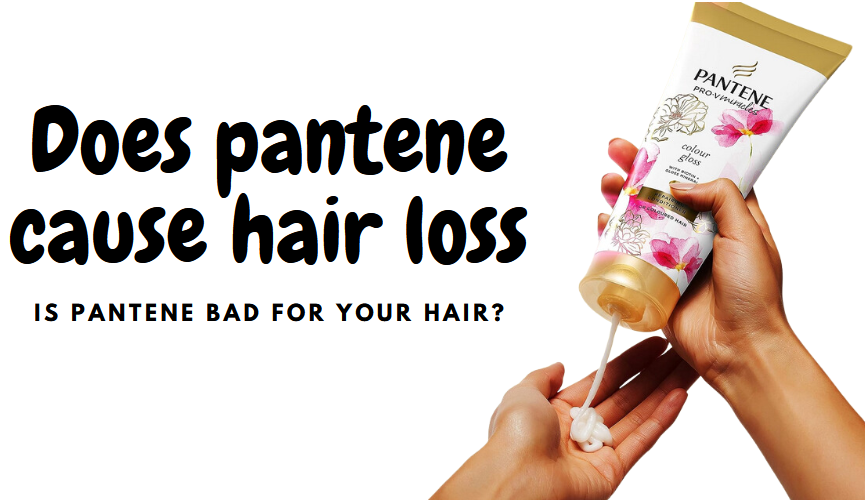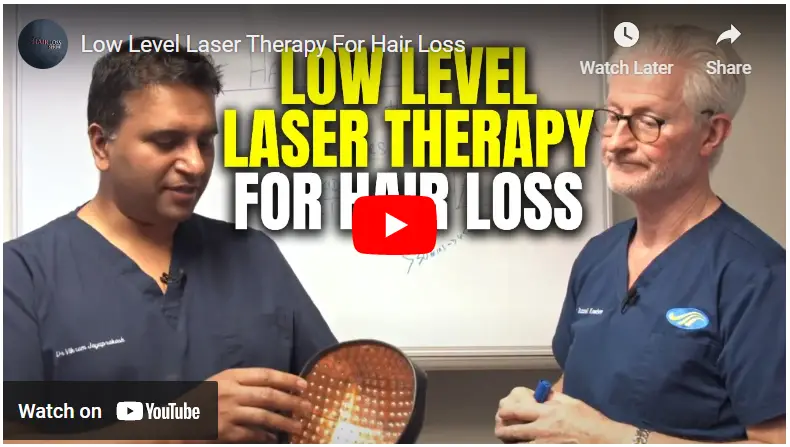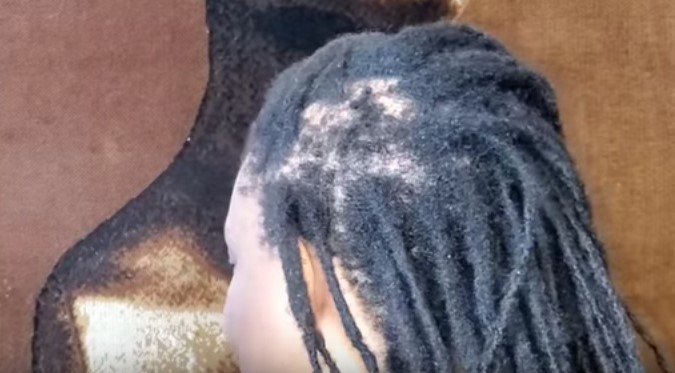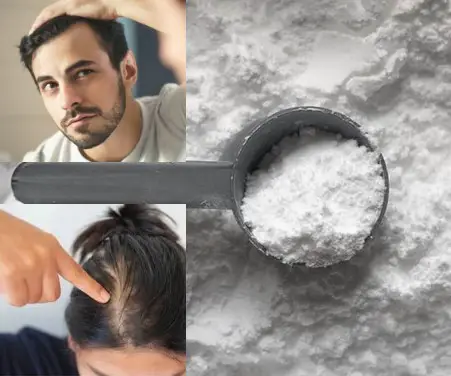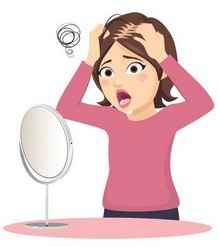In recent years, the reputation of numerous haircare brands has come into question, with discussions centering around the potential harm that these products may cause. Pantene, one of the most well-known and widely used haircare brands, has also been caught in this web of speculation. Our endeavor to dissect this issue will include a deep dive into Pantene’s product composition, an assessment of the various rumors, an evaluation of professional opinions, and an exploration of the effect of these products on different hair types.
Understanding Pantene’s Hair Care Products
Pantene, a world-renowned hair care brand, uses multiple types of ingredients in its extensive range of shampoos and conditioners. These include surfactants, moisturizing agents, conditioning polymers, silicones, preservatives, colorants, and fragrances. Each product line under the Pantene brand features a tailored mix of these ingredients designed to deliver specific benefits, such as moisturization, volume enhancement, color protection, hair loss prevention, and others.
All Pantene products adhere to strict quality control measures to ensure safety, purity, and effectiveness. Thorough testing is carried out to evaluate and substantiate these factors. Every Pantene shampoo and conditioner undergoes a series of assessments for attributes such as pH, viscosity, foaming properties, and conditioning performance, among others.
Scientific Support for Pantene’s Ingredients
Scientific research backs the use of ingredients in Pantene’s hair care products. For instance, surfactants in Pantene shampoos are there to cleanse hair of excess oils and impurities. Conditioning polymers and silicones smooth and detangle hair, reducing breakage and enhancing shine. Moisturizing agents protect hair from drying and damage.
That said, the presence of ingredients like silicones and sulfates has prompted some criticism of Pantene’s products. Though these ingredients serve specific roles, misapplication or overuse of products containing these components might lead to unwanted effects. Silicones, for instance, may weigh down hair if applied excessively, leading to a flat, dull appearance. Sulfates, high-performance cleaning agents, might strip away natural oils if used too much, potentially leading to dryness and frizziness.
Is Pantene Bad for Your Hair?
While certain ingredients have received criticism, it’s crucial to clarify that Pantene’s products are safe. They have met, and usually exceed, all FDA regulations and guidelines for hair care products. Pantene continually innovates and builds on the latest scientific research to include the most appropriate ingredient mix in their products for various consumer hair needs.
The appropriateness of a particular hair care product largely depends on an individual’s hair type, condition, and specific needs. If you experience adverse effects from using Pantene products, it might be due to a mismatch between these products and your hair care requirements. It is advisable to consult with a hair care professional or a dermatologist to select the products best suited for your hair type and condition. It should also be emphasized that using any product in moderation and per directions is key to avoiding potential undesired effects.
Understanding Hair Types and Varied Needs
Pantene crafts its products intending to address the wide spectrum of hair types and conditions found among individuals. Therefore, it’s normal to observe varying outcomes – while some may swear by Pantene, some may find it doesn’t work as expected for them. Such variations are standard, given the divergent hair types and conditions among users.
Essentially, decision about Pantene’s hair care product selection should be based on personal experiences and scientific facts, rather than hearsay or misinformation. Seeking advice from a professional in hair care is always a prudent step to aptly determine your haircare requirements and select suitable products.
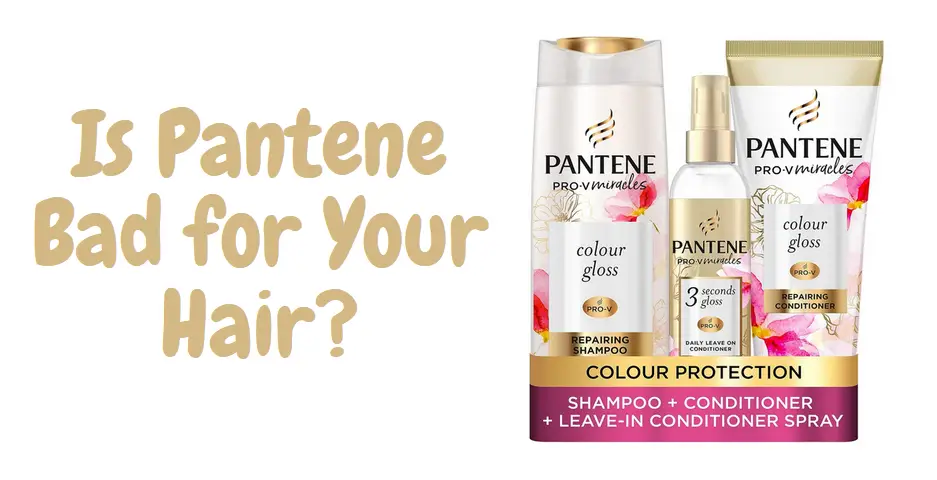
Claims About Pantene Being Bad for Hair
Debunking the Allegations of Pantene Being Harmful to Hair
A proliferation of assertions online imply Pantene’s products might be detrimental to hair health. The focal point of these claims is the use of silicones and waxes in Pantene’s composition, allegedly causing product build-up and subsequently leading to lackluster, heavy, and unhealthy hair over prolonged use.
Who Makes These Claims And Why
These adverse claims about Pantene are often made by hair care professionals, bloggers, and individuals who have experienced negative hair experiences after using Pantene products. Their reasons range from personal experiences, theories about cheap ingredients, to general distrust of large corporate brands.
The Role of Silicones and Waxes in Pantene Shampoos
Many of Pantene’s shampoos and conditioners contain silicones and waxes. These ingredients are designed to give hair a smooth, shiny appearance immediately after use. Silicones can fill in the porous areas of hair strands, making them appear smoother and healthier, while waxes can add a shiny finish. However, over time, these substances can accumulate on the hair if not properly washed out, leading to the hair feeling heavy, greasy, and lifeless.
The Credibility of These Claims
The validity of these claims is somewhat mixed. While it’s true that silicones and waxes can cause buildup if not adequately washed out, this may not necessarily result in long-term hair damage. It’s also worth noting that not all silicones are harmful – some are water-soluble and easy to wash out, while others can actually provide significant benefits to hair health, such as protecting hair from heat damage.
Real Customer Reviews and Reports on Hair Damage Attributed to Pantene
A quick internet search yields a variety of customer reviews and testimonials both for and against Pantene. While some users swear by their products and have noticed an improvement in their hair health, others report increased hair breakage, excessive dryness, and dullness purportedly caused by continued use of Pantene products.
A Summary of the Pantene Debate
It has been suggested that Pantene products could pose a risk to hair health, primarily due to the alleged buildup of silicone and wax. However, it is vital to note that the impact of these ingredients can significantly vary among users. Factors such as hair type, how the product is applied, and personal hair-care regimes can greatly influence the overall effect of these materials. Therefore, it is always advisable to understand your particular hair’s requirements and seek advice from a qualified hair care professional before deciding to drastically change your hair care lineup.
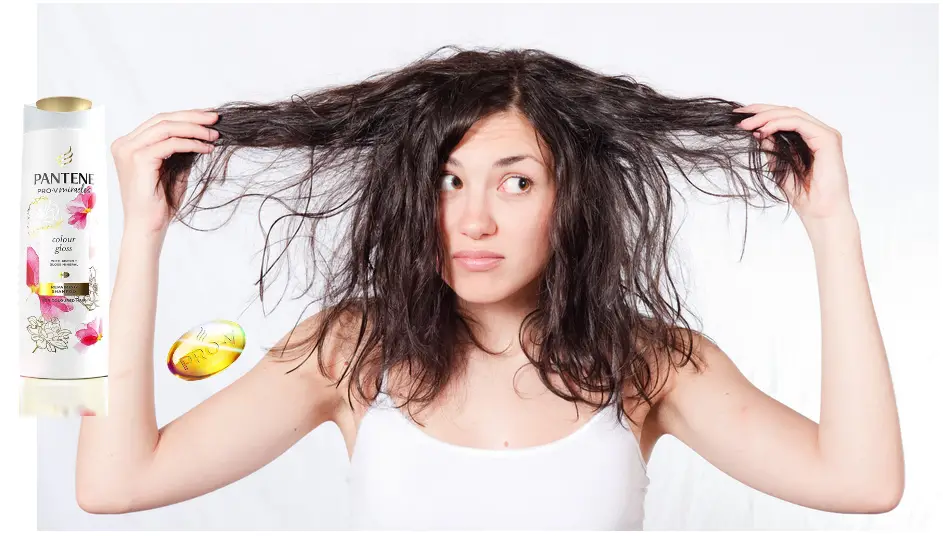
Expert Opinions on Pantene’s Hair Products
What Hair Care Professionals Say About Pantene
Many hair care professionals express reservations about Pantene products, despite the brand’s popularity and affordability. Their primary concern lies in the high concentration of silicone in the products. Silicone is used to instantly give hair a shiny and smooth look. However, according to a variety of stylists, dermatologists, and trichologists, continuous application of silicone-based products can lead to unwanted buildup. Over time, this buildup may leave hair weighed down, lackluster, and void of life.
Effect of Silicones on Hair
Initial use of Pantene’s silicone-heavy products often results in positive impressions, as silicones form a layer around the hair shaft, producing an instantly smoother and shinier appearance. But continuous use can lead to silicone accumulation which is difficult to remove, even with thorough washing. This might make hair appear healthier in the short-term, but over time, the silicone barrier could prevent moisture, protein, and other beneficial nutrients from penetrating the hair shaft.
Potential of Hair Damage
Though there is ongoing debate in the haircare industry regarding the harmful effects of silicone on hair, some professionals argue that prolonged exposure could lead to certain types of hair damage. The silicone layer may keep beneficial ingredients from reaching the hair shaft, causing dryness and brittleness. Additionally, removal of silicone buildup often requires harsh, clarifying shampoos, which could further strip the hair of its natural oils.
Individual Hair Needs and Responses
Yet, it should be noted that individual hair biology differs significantly from person to person. Therefore, what works for one person’s hair might not necessarily work for another’s. Some hair types may respond well to Pantene products, where others might experience adverse effects. It is often advised to take into account your own hair’s individual needs, structure, and texture when selecting hair care products.
Scientific Evidence on Pantene’s Effect on Hair
Apart from professionals’ opinions, scientific evidence regarding Pantene’s negative impact on hair is limited. Many concerns seem to stem from anecdotal accounts rather than rigorously conducted studies. While the potential build-up issue with silicone-containing products is recognized, extensive research is not currently available to conclusively link Pantene’s products with significant hair damage.
Contrasting Views Throughout the Industry
Views among experts regarding Pantene are mixed. Some professionals might recommend avoiding Pantene products altogether due to their potential for build-up and long-term damage, while others may suggest these products are harmless and may even serve useful for certain hair types – especially those seeking a temporary boost in appearance.
The Significance of Shampoo Alternation and Diversification
One principal advice often given by hair care specialists is to refrain from consecutively using the same product for a prolonged duration. Shifting amidst a variety of brands or formulas can mitigate any potential adverse effects from particular ingredients. This is because each product has different ingredients and provides a wide array of benefits and possible negatives. In this context, a product like Pantene could be part of this rotation, but using it continuously may have unfavorable results in the long run.
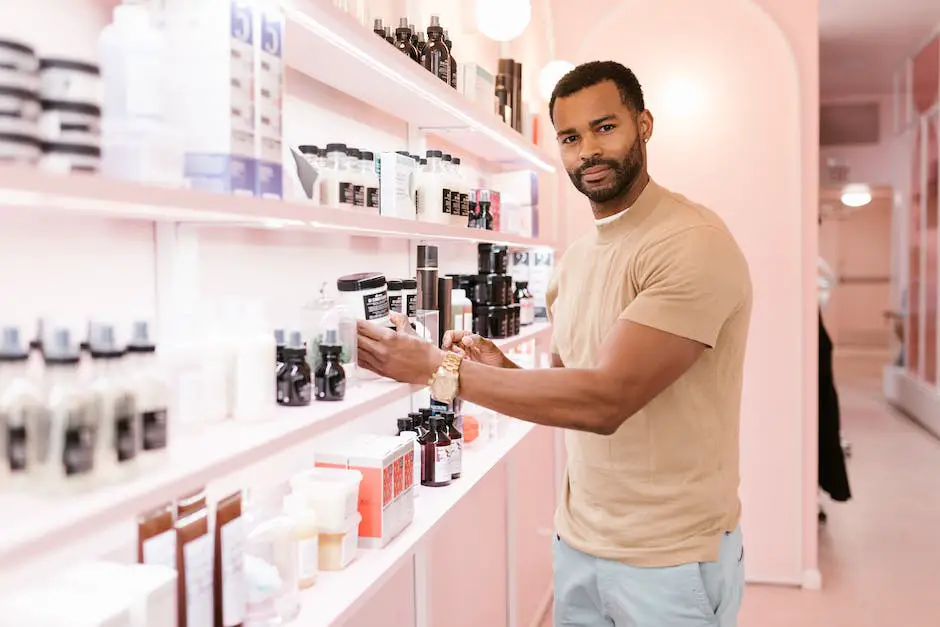
Impact of Pantene Products on Different Hair Types
Understanding Pantene’s Hair Care Range: A Comprehensive Look
Pantene’s collection of hair care products have a global fanbase. Renowned for their Pro-V formula, the Pantene line comprises shampoos, conditioners, hair treatments, and styling products. Each of these products promises to enhance the health and look of your hair.
Allegations Against Pantene
There are common allegations against Pantene that suggest their products may be damaging to hair health over time. Most of these allegations center around one key ingredient: silicone. Silicones give hair a shiny, smooth appearance immediately after use, which leads many consumers to believe the product is improving their hair health. However, some argue that continuous use of these products can create a buildup of silicone on the hair shaft, making hair dull and lifeless.
Potential Damage in Different Hair Types
The extent of potential damage from Pantene products can vary depending on the specific hair type. Those with thick, coarse hair may not experience noticeable damage as quickly as those with fine or thin hair, as the latter types are more prone to breakage and damage from product buildup. Additionally, chemically treated or colored hair may react differently to Pantene products. These hair types can become dry and brittle with extended use of products containing high amounts of silicone.
Responses to the Claims
Pantene has refuted these claims and argues that silicones are safe for hair and do not cause buildup. They claim their products are engineered to leave hair feeling moisturized and soft, without creating damaging deposits. Some experts agree, stating that silicones can provide protection for hair by forming a barrier around the hair shaft, which can minimize damage from heat styling and environmental factors.
Expert Opinions and Scientific Evidence
Opinion among experts in the field of hair care is divided. Some believe silicone-based products are harmful to hair health, while others think they can be beneficial when used correctly. In a study published in the International Journal of Trichology, it was found that silicones offer significant benefits for hair health by reducing friction, preventing cuticle damage, and providing a protective layer to prevent damage from heat and other environmental factors. However, another study in the Journal of Society of Cosmetic Chemists suggests that excessive silicone buildup can result in brittle hair.
Role of the Consumer
Sensitivity to Pantene hair care products is subjective and depends on various factors such as hair type, usage, and individual hair health condition. Many consumers still swear by Pantene products, suggesting that negative effects are not universal. It’s best for consumers to experiment, monitor their hair’s response to various products, and decide what works best for their specific needs. If a consumer experiences dryness, dullness, or reduced hair health after using Pantene, switching to a silicone-free or natural product might be a better option.
The Verdict
There is no definitive answer whether Pantene is bad for your hair. Some consumers have had negative experiences, while many others find Pantene products work well for their hair care needs. Moreover, expert opinion is divided on the use of silicones in hair products. As such, it is important for consumers to make informed choices, taking into consideration their hair type and the overall health of their hair.
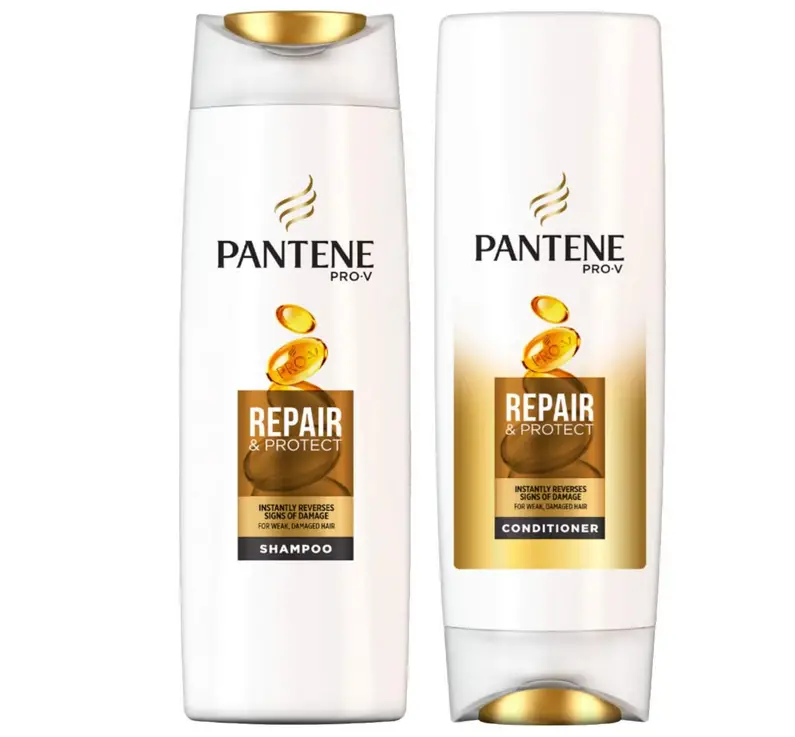
After evaluating the numerous perspectives and evidence presented, it’s clear that the question ‘Is Pantene bad for your hair?’ does not result in a definitive yes or no answer. While some individuals and hair types might experience adverse reactions to Pantene’s hair care range, others might find Pantene products to be highly beneficial for their specific hair needs. When making decisions about hair care, being well-informed and understanding ingredient lists can be helpful. Ultimately, choosing the right hair care regimen is a deeply personal decision, and it’s essential to acknowledge the complexity and uniqueness of our own bodies.
- AI Powered Bald Filter Online 2024: See Yourself with No Hair! - January 19, 2024
- Harklinikken Bad Reviews 2024: Analyzing Negative Feedbacks - January 18, 2024
- How to Get the Alex Eubank Hair | Step-By-Step Tutorial 2024 - January 18, 2024

